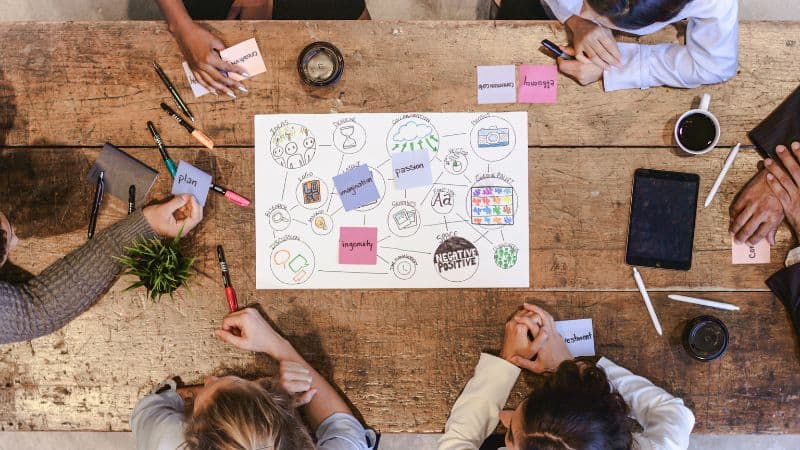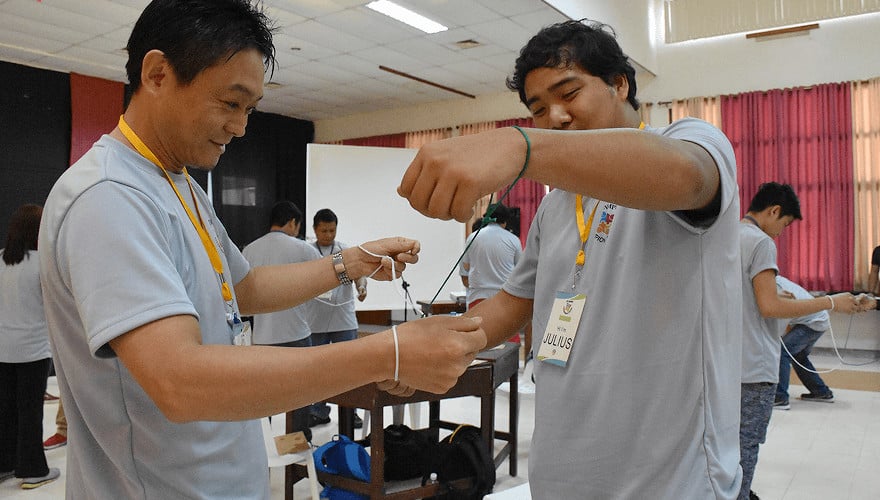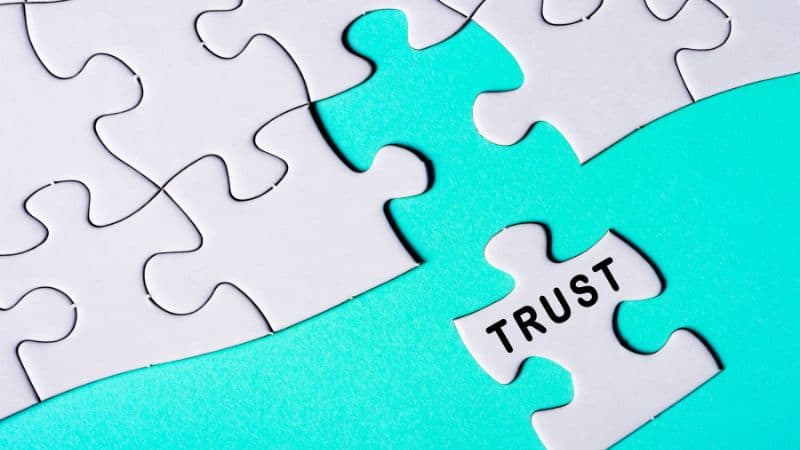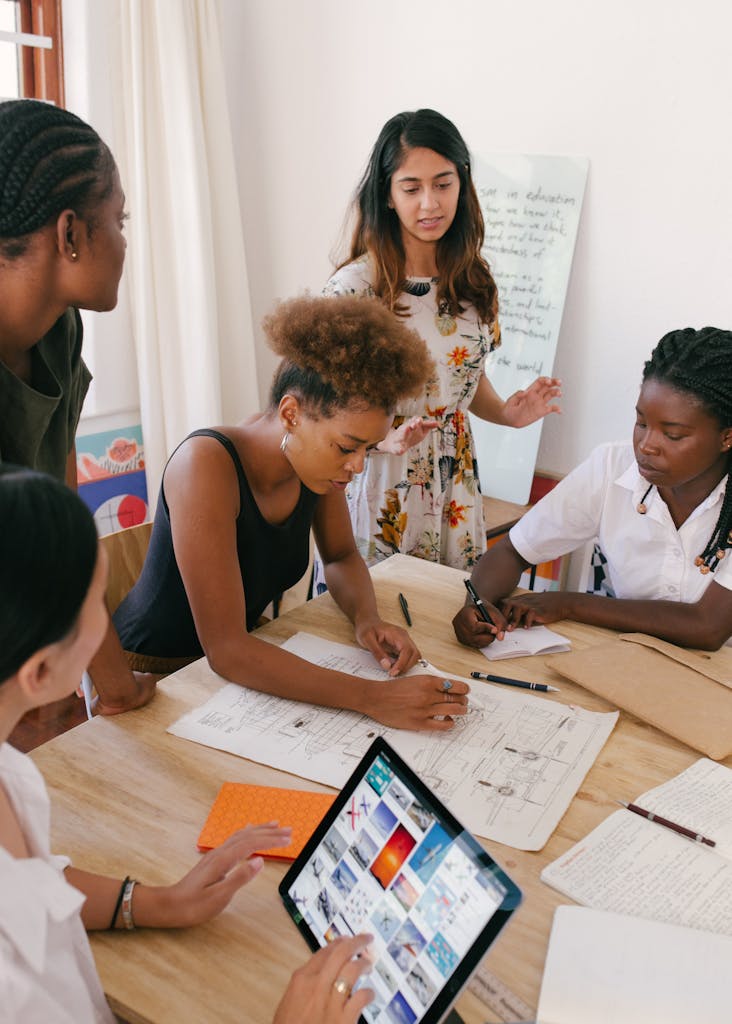We play games in team building because they are the secret ingredient in my recipe for creating cohesive, efficient, and happy teams. Team building games are not just playful activities; they are strategic tools designed to enhance communication, boost morale, and uncover individual strengths within your team.
Many team-building facilitators use games for entertainment. They want you to feel the adrenaline rush, experience the joy of winning, and bond with your team members. I want these for your team too.
But I want you to play games because it is a strategic tool to change mindsets and learn new skills that will help teams succeed. So, if you want to discover what others cannot give you through games, I invite you to explore these reasons why I play games in team building.
🎯 Imagine a team that’s not just working together but truly connected. Our team building workshops build the trust, energy, and alignment that every high-performing team needs. Ready to make it happen?
Why Play Games in Team Building
Imagine the atmosphere in your organization becoming more relaxed, yet more focused; the interactions, are more open and harmonious. That’s the transformative power of team-building games.
Our games are carefully chosen to break down barriers and spark conversations, making your team members feel comfortable with each other. Through this, we foster an environment where ideas are shared freely, enhancing teamwork and efficiency.
The benefit doesn’t stop at improved communication. Our games are also designed to lighten the mood and inject a sense of fun into the workplace.
A team that laughs together, works well together. High spirits and a positive environment translate to better productivity and resilience in the face of challenges.
Additionally, team-building games reveal the hidden talents and strengths of your team members. Discovering these can help align roles more effectively, boosting overall performance. Games also encourage creativity and out-of-the-box thinking, invaluable assets in today’s fast-paced business landscape.
Moreover, these games teach a valuable lesson in resilience. They show that setbacks can be stepping stones to success, an essential mindset for thriving in a competitive environment.
Please allow me to explain the first 15 reasons why I use games in team building.

Promote team accountability.
Promoting team accountability is a crucial advantage of our team-building games. Games can serve as effective vehicles to deliver lessons on accountability, showing how proactive actions and ownership of results matter in achieving success.
An example that perfectly encapsulates this concept is the game we play called “Accountability Balls.”
Cultivate leadership skills.
Cultivating leadership skills takes the spotlight in our “Break the Record” games. This collection of 20 diverse games presents the perfect platform for potential leaders to emerge and hone their skills. The beauty of this game is its versatility – some tasks can be completed solo, while others require collaboration, and still, others need the entire team’s effort. All this, against the ticking clock of just two hours.
Picture this scenario: your team is enthusiastically strategizing on how to conquer these 20 tasks within the given timeframe. The games range from a 20-minute challenge to rapid 30-second tasks. Who will tackle which game? How will the team manage the time efficiently? These are the decisions your team needs to make. And in these moments, you’ll notice individuals stepping up, taking charge, and displaying their leadership potential.
In “Break the Record,” roles are assigned – team leaders, timers, and recorders. But the game isn’t just about fulfilling assigned roles. It’s about strategic thinking, effective communication, and strong leadership. It’s an exciting, high-energy setting that naturally encourages individuals to demonstrate and develop their leadership abilities.
The leadership skills nurtured during these games don’t stay on the gaming floor – they are carried back into the workplace. Potential leaders who emerge during the game can become valuable assets to your organization, steering your team to greater heights of success.
In essence, the “Break the Record” games are not just about fun and time management. They’re about spotlighting and fostering leadership skills. They’re about building a team that doesn’t just follow instructions but steps up to lead. Because a team with strong leaders is a team that excels.
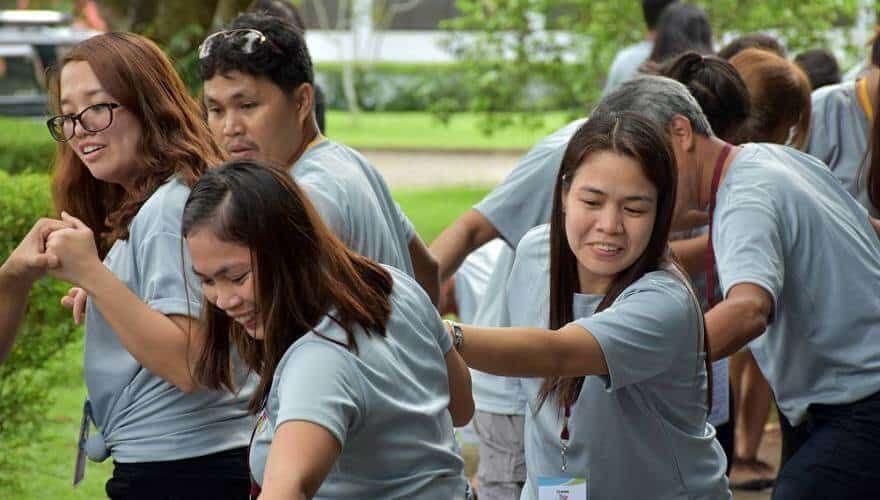
Promote communication.
Team building games are a remarkable tool that seamlessly weaves together elements of fun and productivity. At the heart of these activities lies an essential benefit: promoting communication. But it’s more than just encouraging dialogue – these games establish a channel for easy, open, and fruitful conversation among your team members.
The moment the games begin, you’ll notice the immediate positive effect. The room will start buzzing with interaction. Ideas will flow, strategies will be shared, and there’s an undeniable energy that fills the space. People who hardly spoke before might suddenly find common ground, engage in discussion, or share a joke. It’s like flipping a switch; one moment it’s individuals in a room, the next, it’s a dynamic team bouncing ideas off each other.
This is what the games are designed for.
They provide a friendly, relaxed environment that encourages interaction. The initial awkwardness fades away, replaced by enthusiastic communication. The games prompt people to strategize, to work together, and above all, to connect. That’s the beauty of it – everyone is involved, everyone is invested, and everyone communicates.
Some facilitators think of the first thing they do as icebreakers. I do connection games. It is important for people to see how connected they are to each other.
Once these connections are formed, they last. The ease of communication goes beyond the games. It carries over to daily tasks, projects, and challenges that your team faces. The games are not just a one-off event, but a catalyst for lasting, positive change in your team’s dynamics. Remember, a team that communicates well, works well.
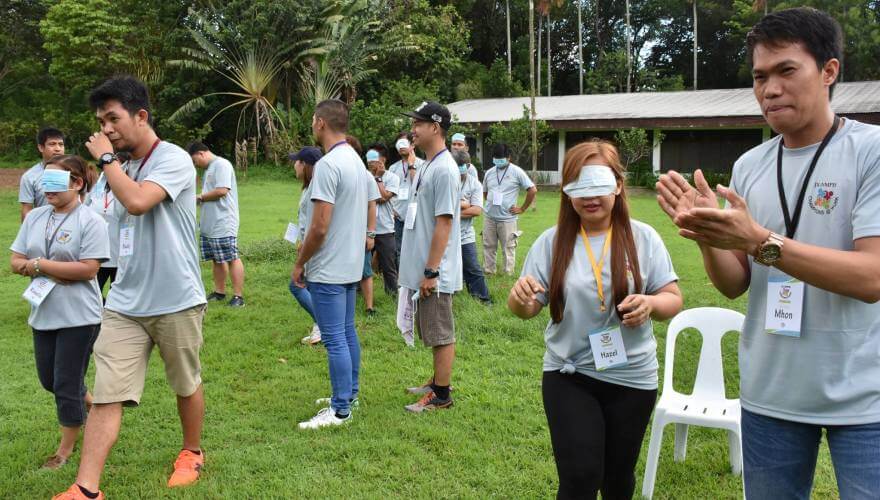
Boost morale.
There’s something about the fun, lively nature of games that lifts spirits and infuses the air with positivity. When your team is engaged in a game, laughter echoes, smiles broaden, and a sense of camaraderie strengthens.
Imagine your team engaged in a light-hearted competition, cheering each other on, celebrating victories together, or laughing over shared missteps. There’s an unmistakable upliftment in mood, a tangible increase in positivity. This is the essence of games – they don’t just entertain, they uplift.
I see this happen even in intense games like All Aboard, Accountability Ball, and the Break the Record games.
Morale, as we know, is vital in any workplace. A high-morale team is enthusiastic, motivated, and productive. It’s a team that faces challenges head-on, and a team that sticks together in tough times.
And our team building games aim to foster exactly this spirit.
The positivity generated during the games doesn’t just stay within the confines of the game, it spills over into daily work life. Post-game, you’ll find your team more vibrant, more energetic, and more positive. There’s a shared sense of enjoyment, a common pool of happy memories that the team can draw upon even in the face of challenges.
In short, our team-building games are not just about having a good time. They are a powerful morale booster, designed to build a team that’s not just happier but also more resilient, united, and productive. Because when the morale is high, the sky’s the limit!
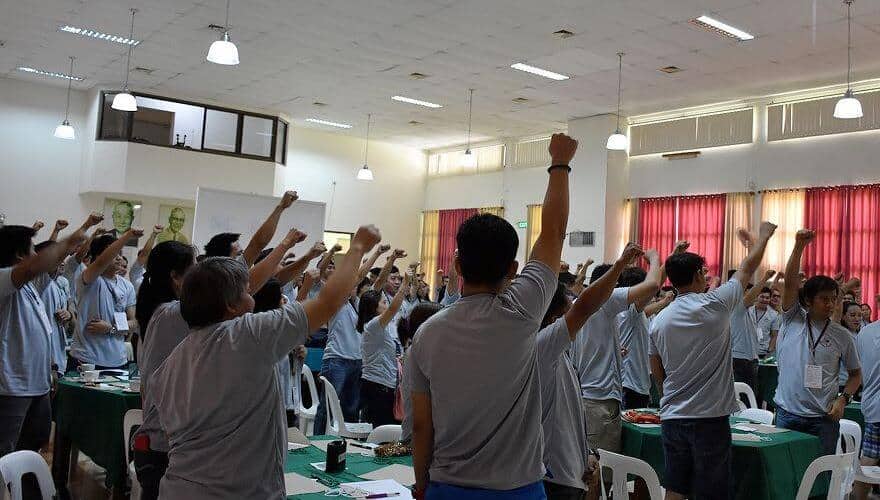
Encourage healthy competition.
Fostering a sense of healthy competition is another cornerstone of our team-building games. Sure, we have games where team members compete against each other, sparking an adrenaline rush, and pushing them to give their best.
However, most of our games are designed around a different concept. They are set up in a way that pits teams against time and standards, not against each other.
These games encourage collaboration among different teams. They emphasize the fact that they’re not rivals, but part of one big team. The real challenge is to meet standards and beat the clock, not to outdo each other.
In this setup, the focus shifts from rivalry to cooperation, from winning alone to winning together.
Imagine your teams working hand-in-hand, pooling their resources, and sharing their strategies, all towards a common goal.
The satisfaction of achieving the goal becomes a shared joy, a collective victory. It underscores the fact that they’re all on the same side, working towards the same objectives.
The realization is profound.
It’s an eye-opener that they’re not competing against each other but are working together as part of a larger team. It fosters an environment where everyone strives to win, but not at the cost of others. It’s about everyone moving forward, everyone succeeding together.
Our team-building games promote a win-win situation. They don’t just foster competition; they encourage healthy competition. A competition that motivates, a competition that unites, and a competition that ultimately leads to better teamwork.
Because in the end, it’s not just about winning, but about winning together.
Strengthen team identity.
.Imagine a group of individuals transformed into a unified team – that’s the power of team-building games. They instill a sense of belonging, kindle a flame of shared pride, and establish a strong team identity.
Every game we conduct is built around a simple yet profound idea: We are one.
Whether it’s a thrilling quest or a strategic puzzle, the focus is on unity. We reinforce that each member is part of the same vision, mission, values, and goals.
The games echo the message that while we can make a difference individually, together, we can move mountains.
When your team members play together, they experience the power of their collective strength. They learn to take pride in their team, not just in their individual achievements.
This ‘pride by association’ is a powerful glue that holds the team together, creating a strong, unbreakable bond.
Games, by their nature, make it easier to imbibe this culture. They offer a friendly, fun, and relaxed environment that subtly instills these values. It’s about weaving the essence of team identity into the fabric of enjoyment, where learning becomes as natural as having fun.
Build trust.
Building trust is an integral part of our team-building games. Trust isn’t something that can be forced; it has to be earned, and our games offer the perfect platform for this to happen.
When team members participate in games, they often find themselves relying on each other. This shared dependence naturally fosters a sense of trust.
Consider the previous reasons we’ve discussed: promoting communication, boosting morale, encouraging healthy competition, and strengthening team identity.
These are all stepping stones toward building trust. When team members connect and communicate, when they share victories and laughter, when they realize they’re part of something bigger, trust is subtly woven into their interactions.
Games that position team members as collaborators, rather than competitors, are especially powerful in fostering trust.
When they’re working together to beat the clock or meet a standard, they open up to each other. They share ideas, admit uncertainties, and lean on each other for support. In this environment of collaboration, they allow themselves to be vulnerable, a key ingredient in the recipe for trust.
In essence, our team-building games aren’t just about fun and interaction. They are trust-building exercises. They create an environment where trust is nurtured and grows naturally. They remind everyone that they’re part of a trustworthy team, a team where members can rely on each other, a team that takes pride in its unity and trustworthiness.
Because at the end of the day, trust is the foundation of any great team.
Enhance problem-solving skills.
Many of our games revolve around puzzles, riddles, or complex tasks that push your team members to put on their thinking caps. It’s a playful, engaging way to cultivate critical thinking, an essential skill in today’s dynamic and challenging work environment.
Executives and managers love these games. I may include a bit of physicality in the games, but the key to winning is in the ability to solve problems.
Picture this: your team is faced with a mystery to solve or a challenge to overcome. They need to work together, using their collective intellect and creativity, to find a solution. This isn’t just about finding the answer – it’s about the process, the brainstorming, the creativity, and the strategic thinking that goes into it. It’s about tackling a problem from different angles, leveraging each member’s unique perspective.
These games stimulate your team members’ minds, encouraging them to think critically and creatively. They learn to examine problems closely, come up with innovative solutions, and adapt when a certain strategy doesn’t work.
And the best part?
They’re developing problem-solving skills while having a great time!
The problem-solving skills they hone during these games transfer directly to the workplace. They’ll be better equipped to deal with challenges, to think innovatively, and to make strategic decisions. And they’ll do it as a team, leveraging each other’s strengths, and arriving at solutions collectively.
In short, our team-building games are not just about entertainment. They’re about building a team of problem solvers. A team that can face any challenge head-on, with creativity, critical thinking, and collaborative effort.
Because a problem shared is a problem halved – and a team that solves problems together, succeeds together.
Develop resilience.
Games are inherently filled with challenges, obstacles, and occasional setbacks. It’s the nature of the game – you strive, you stumble, but then you pick yourself up, dust off, and go again.
This journey, this cycle of trying and failing and trying again, is a fantastic way to build resilience.
This is why at the beginning of my sessions, I often say “I may fall seven times, but I will stand up eight times”.
Picture your team engaged in a game, facing a tough challenge. They try, and they fail. But then, they regroup, they strategize, and they try again, with even more determination.
This repeated process isn’t just about the game; it’s a metaphor for life and work challenges. It’s a practical lesson in resilience and persistence.
Don’t stop until you win.
What’s wonderful about learning resilience through games is that it’s not a bitter pill to swallow. It’s a lesson learned through excitement, engagement, and camaraderie. The team learns that setbacks are not the end, but simply a signal to try a different approach. They learn the power of persistence, the importance of staying positive, and above all, the strength of resilience.
This resilience carries over into their daily work life. They’ll be better equipped to handle setbacks, remain unfazed in the face of adversity, and persevere until they achieve their goal. And they’ll do this not just as individuals, but as a resilient team that stands together in challenging times.
In essence, our team-building games are not just about enjoyment. They are about crafting a team of resilient individuals who can face challenges head-on and bounce back from setbacks.
Because a resilient team is a successful team, a team that can weather any storm and come out stronger on the other side.
Reveal strengths and weaknesses.
Imagine your team participating in a game that requires strategy, communication, problem-solving, and leadership. As the game progresses, you’ll start to see natural leaders emerge, effective communicators stand out, and strategic thinkers shine.
You’ll also notice areas where team members might need a bit of help. All these observations come out organically, providing valuable insights into each individual’s strengths and weaknesses.
These games give everyone a chance to showcase their abilities and recognize areas they need to work on. And they do so in a supportive, non-threatening environment.
It’s a way of understanding one’s capabilities without the fear of judgment or failure.
The information gleaned from these games can be immensely valuable in the workplace. Knowing the strengths and weaknesses of each team member can help in assigning roles that maximize individual potential and overall team productivity.
It can also highlight areas where training or support might be needed, allowing you to proactively address these needs.
Again, our team-building games are not just about fun. They’re about revealing and understanding each other’s strengths and weaknesses. They’re about helping each other grow, improve, and become the best versions of ourselves.
Because a team that understands and complements each other’s strengths is a team that succeeds together.
Enhance understanding and empathy.
Imagine your team navigating through a game that requires them to step into each other’s shoes, understand different perspectives, or empathize with the challenges others face.
As they play, they begin to see things from various angles, they start to appreciate the struggles and triumphs of their colleagues, and they learn to empathize.
These games foster an environment of mutual understanding. They break down walls and open doors to shared experiences and perspectives. And they do it all while the team is having a great time!
This enhanced understanding and empathy extend beyond the game, into the workplace. Teams that understand each other, that empathize with each other’s challenges, work more effectively and harmoniously together. They’re more supportive, more inclusive, and more cohesive.
Our team-building games are not just about fun and interaction. They’re about fostering a deeper understanding and empathy among team members. They’re about building a team that understands, appreciates, and supports each other.
Because a team that empathizes together thrives together.
Improve conflict resolution skills.
Games naturally bring out a competitive spirit and can sometimes lead to conflicts or disagreements. However, resolving these conflicts in a friendly, constructive way is an essential part of the game and a valuable lesson for workplace interactions.
Picture this: your team is deeply engaged in a game. There’s a disagreement about the next move or perhaps a dispute about the rules. It’s a game, so the atmosphere remains friendly, but the conflict needs to be resolved for the game to proceed.
This is when your team members put their conflict-resolution skills into play.
These moments in the game serve as practice for real-world scenarios. They give team members the chance to navigate conflicts in a safe and low-stakes setting. The aim isn’t just to win the game, but to maintain harmony and camaraderie in the team, even when conflicts arise.
The skills your team members sharpen during these games directly translate into their workplace roles. They’ll be better equipped to handle disagreements, find common ground, and keep team morale high, even when conflicts occur.
Increase engagement.
Increasing engagement is another vital benefit that springs from our team-building games. Let’s be honest, games are fun! They’re exciting, they’re enjoyable, and they’re captivating.
This engaging nature of games can significantly boost the motivation and involvement of your team members, not just during the games, but extending into the workplace as well.
Imagine your team participating in a thrilling, fun-filled game. They’re excited, they’re animated, and they’re fully engrossed.
That’s the power of games – they capture attention, spark enthusiasm, and they keep everyone engaged.
And as your team plays, they’re not just enjoying the game; they’re also becoming more engaged, more motivated, and more inspired.
But it’s not just about the immediate engagement during the game. This increased level of involvement carries over into their everyday work life. They bring the same excitement, the same enthusiasm, and the same level of involvement to their roles. Their motivation is high, their focus is sharp, and their performance is enhanced.
Our team-building games promote engagement, spark motivation, and drive involvement.
They’re about building a team that’s not just engaged during games but engaged in their roles, engaged in their tasks, and engaged in their pursuit of success.
If you’re building a business and you are playing to win…
Let’s install one shift that moves metrics.
→ Shift Experiences


